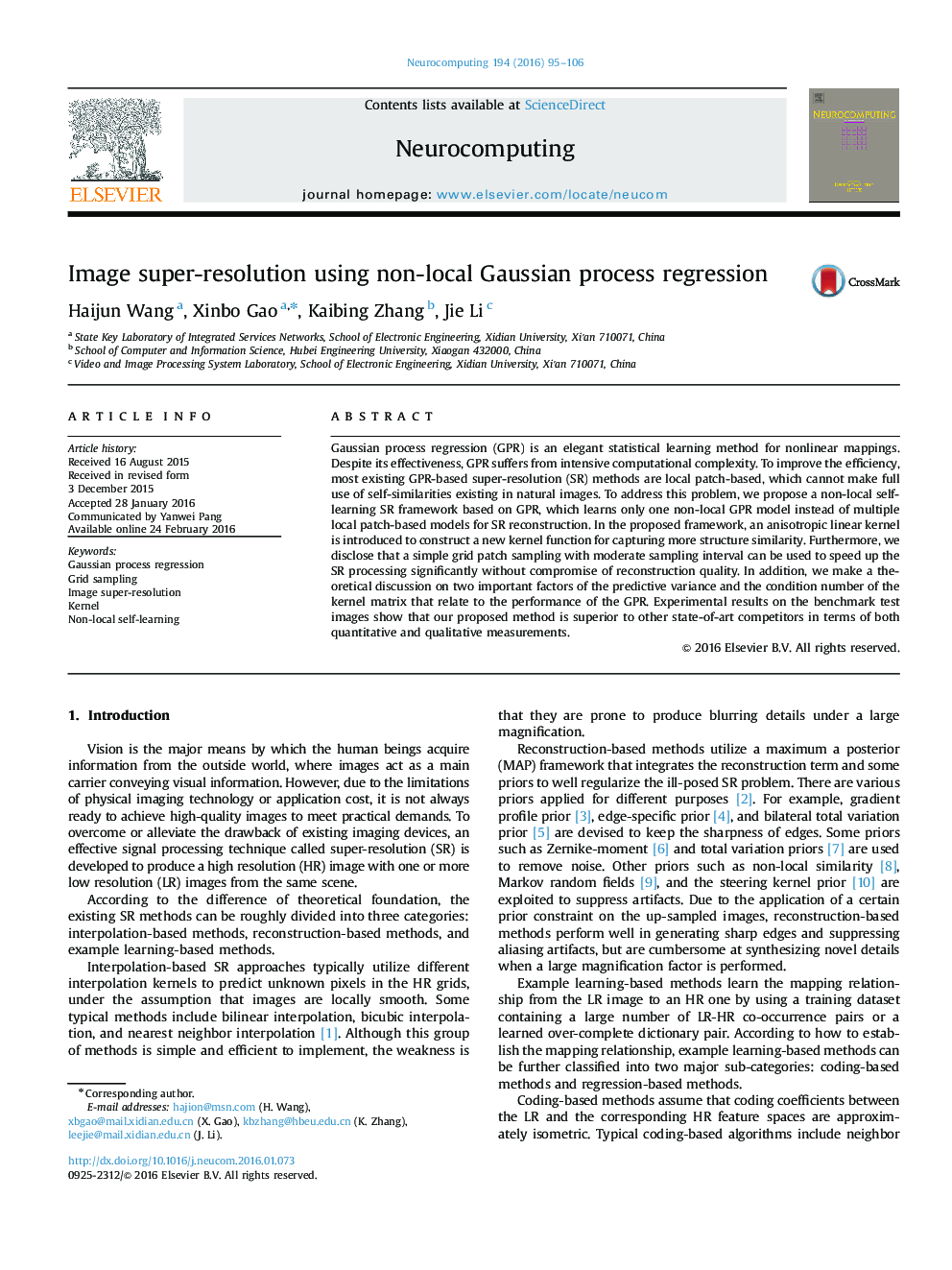| Article ID | Journal | Published Year | Pages | File Type |
|---|---|---|---|---|
| 408298 | Neurocomputing | 2016 | 12 Pages |
Gaussian process regression (GPR) is an elegant statistical learning method for nonlinear mappings. Despite its effectiveness, GPR suffers from intensive computational complexity. To improve the efficiency, most existing GPR-based super-resolution (SR) methods are local patch-based, which cannot make full use of self-similarities existing in natural images. To address this problem, we propose a non-local self-learning SR framework based on GPR, which learns only one non-local GPR model instead of multiple local patch-based models for SR reconstruction. In the proposed framework, an anisotropic linear kernel is introduced to construct a new kernel function for capturing more structure similarity. Furthermore, we disclose that a simple grid patch sampling with moderate sampling interval can be used to speed up the SR processing significantly without compromise of reconstruction quality. In addition, we make a theoretical discussion on two important factors of the predictive variance and the condition number of the kernel matrix that relate to the performance of the GPR. Experimental results on the benchmark test images show that our proposed method is superior to other state-of-art competitors in terms of both quantitative and qualitative measurements.
